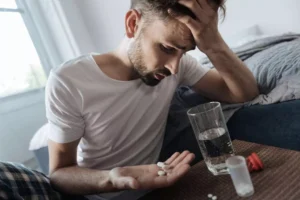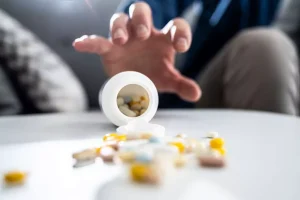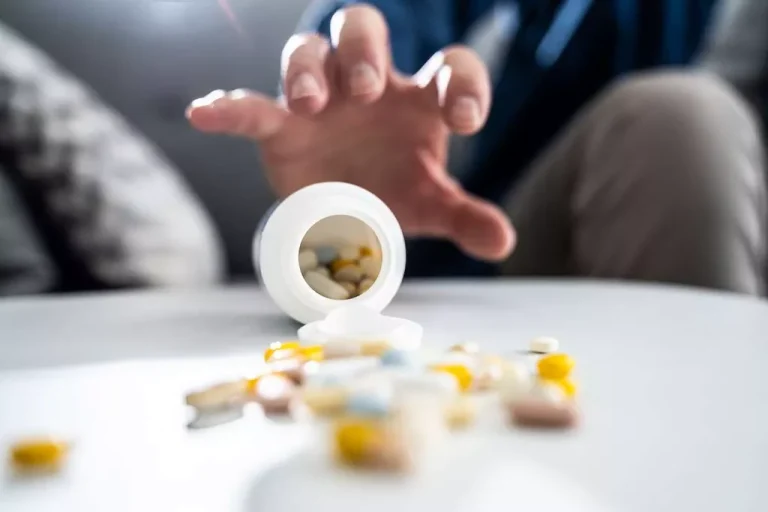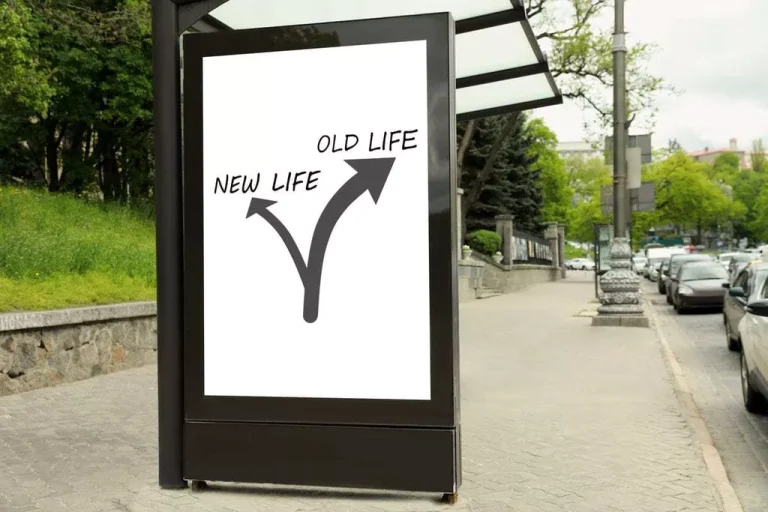
Since alcohol can cloud your brain, it can keep you from seeing helpful solutions to problems. In small to moderate amounts, alcohol can temporarily lift your spirits and help improve your mood. Get helpful tips and guidance for everything from fighting inflammation to finding the best diets for weight loss…from exercises to build a stronger core to advice on treating cataracts. PLUS, the latest news on medical advances and breakthroughs from Harvard Medical School experts.
Why Does Dark Roast Coffee Sometimes Taste Burnt?
It’s more likely to worsen negative mood states, along with physical health. You might begin drinking more regularly in order to feel better or forget about those unwanted emotions and memories. You might feel depressed after drinking because alcohol itself is a depressant. Although it is often hard to tell the difference, your answer may have a big impact on how the doctor moves forward with diagnosis.
- Seek help from a mental health professional if you have anxiety.
- Alcohol dramatically impacts the quality and quantity of rest you get, further contributing to hangover symptoms.
- Every time you drink, alcohol triggers an increase in the production of insulin.
- But regularly drinking more alcohol than these guidelines recommend can pose a number of health risks, including depression.
- Adrenaline increases heart rate, blood pressure, and respiration rate – all physical responses that can make us feel more awake and energized.
- Drinking alcohol triggers the hormone vasopressin, which regulates your body’s water and salt levels.
Related support groups
Caffeine doesn’t just block adenosine; it also affects other neurotransmitters in our brains. It increases the levels of dopamine, norepinephrine, and serotonin, all of which play a role in mood regulation and motivation. Do you ever feel like you’re on top of the world after a cup of coffee, only to crash and burn a few hours later?
How To Stop Anxiety After Drinking Alcohol
If the sun is out, that’s even better — sunshine can trigger the release of serotonin, which can help relieve depression. Maybe you tossed and turned, had bizarre dreams, or woke up with your heart racing. Dopamine produces positive emotions that make you feel good and help reinforce your desire to drink, but alcohol affects your central nervous system in other ways, too. The more you drink, however, the more likely your emotional state will begin plummeting back down. Sometimes, alcohol can make you feel even worse than you did before. Sometimes medications make you feel lightheaded, especially those that lower your blood pressure or make you urinate more.
- If you really don’t want to abstain, then Calmer You has uncovered some small but powerful strategies to help when you are going to drink.
- If you’re worried about having a panic attack after drinking, the best strategy is to abstain.
- Anxiety, depression, and irritability are common hangover symptoms after drinking.
- Maybe you acted in ways that you now regret or feel embarrassed about.
- When you have anemia, your body doesn’t have enough red blood cells, or these cells don’t work well enough.
Anxiety is something so many of us live with—whether it shows up as constant worry, overthinking, or that wired-but-tired feeling you can’t quite shake. While therapy, lifestyle changes, and medical support all play a role, nature has some powerful allies to can anxiety make you feel drunk offer… Before you take any remedies, it is recommended that you seek advice from a doctor or chemist. And, if you really can’t cut down, then it’s best to seek advice from your Doctor about alcohol dependency. If you really don’t want to abstain, then Calmer You has uncovered some small but powerful strategies to help when you are going to drink. These include recommendations from endurance athlete and health expert, Mark Sissons.
Or maybe you immediately start issuing mass apologies to friends and family. But the last step only starts the process again from the beginning. As the initial calm feeling fades you can feel anxiety as the effects of the alcohol wear off.

Alcohol induced blackout
- If someone has learned to rely on alcohol as an anxiety treatment, their anxiety after drinking could lead them to seek out a drink again, thus falling into a dangerous cycle.
- Red wine is also worse than white because it has tyramine and histamines, which are known to trigger anxiety.
- For people who are concerned about their use of alcohol, drugs, or other behaviors, like gambling or self-harm.
- Excessive intake of other drugs and food, including caffeine and sugar, may also be triggers.
You can become agitated and jittery because your body is busy processing the alcohol, which neutralizes the effect of these medications. Do you ever notice yourself feeling a little out of sorts the day after you drink? Anxiety seems to be a bedfellow of alcohol — and for many reasons.
Can You Drink Coffee While Intermittent Fasting
Talking therapies like CBT (cognitive behavioural therapy), can help you learn to spot unhelpful patterns of behaviour and help you to develop coping strategies. Track how much you’re drinking to help spot patterns so you can avoid triggers – the MyDrinkaware app can help. Having a substance use disorder can also increase the chance of having an anxiety disorder. If you or a loved Substance abuse one uses alcohol to cope with anxiety, especially during socializing, it may lead to being dependent on alcohol, especially in social settings. Talk to your doctor about alcohol consumption before taking any of these medications, as side effects can be harmful or fatal. Drinking alcohol can have serious consequences if you’re being treated for anxiety.


If you believe you or someone you love has anxiety that gets worse with alcohol use, you or your loved one can take steps to treat their anxiety and cut down or stop drinking. Society would have us believe that there’s no better way to unwind after a long day than by drinking a glass of wine, cold beer, or sipping your go-to liquor. But trying to relax with a drink or two may not give you the long-term anxiety relief you want. Alcohol-induced anxiety can last for several hours, or even for an entire day after drinking.
Stopping anti-clotting drugs for afib may raise stroke risk
Researchers found that those with an anxiety disorder were between 2.1 and 3.3 times as likely to develop alcohol use disorder. Alcohol impacts your intestines’ ability to absorb certain nutrients, leading to shortfalls in zinc, selenium, potassium, iron, and magnesium. Acetaldehyde contributes to inflammation in the liver, pancreas, intestinal tract, and brain, among other organs. As a result, people feel malaise (a general feeling of unwellness), fatigue, headache, and other physical symptoms. “A lot of the uncomfortable emotions we have, when we try to push them away or avoid them, they just get worse,” Dr. Greenfield says. When you turn toward your feelings, they often become less unpleasant.

Comentários